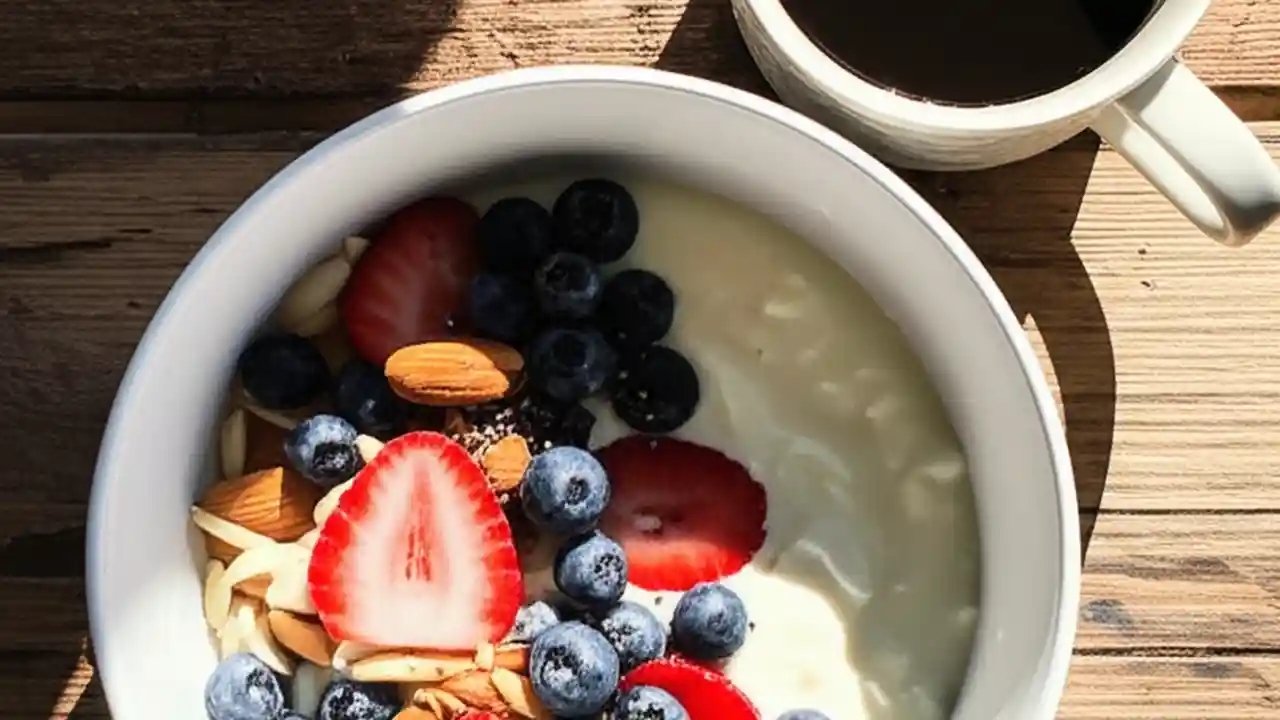Improving your gut health simply means nurturing the trillions of microbes living in your digestive tract, primarily through a diet rich in diverse whole foods, consistent hydration, stress management, and regular physical activity.
Your gut, often called your “second brain,” plays a pivotal role not just in digestion but in overall wellness, influencing everything from your mood to your immune system. If you’ve been wondering how to achieve better digestive wellness or cultivate a more balanced microbiome, you’re in the right place. This comprehensive guide will walk you through straightforward, actionable natural remedies and practical tips to transform your gut health, making it easier than ever to feel your best.
Table of Contents
Understanding Your Gut: The Foundation of Wellness
What exactly is “gut health” and why is it important?
At its core, “gut health” refers to the well-being of your digestive system, particularly the balance of microorganisms living in your intestines, collectively known as the gut microbiome. Think of it as a bustling city within you, with trillions of diverse inhabitants – bacteria, fungi, and viruses – working in harmony.
A healthy gut means these microbes are in a beneficial balance, aiding digestion, nutrient absorption, and even producing vitamins. But its importance stretches far beyond digestion. A well-functioning gut supports a robust immune system, influences mood and mental health via the gut-brain axis, and plays a role in managing inflammation and even chronic diseases. It’s truly central to your entire body’s health.
What are common signs of an unhealthy gut?
Your body is incredibly communicative, and an unhappy gut often sends clear signals. It’s crucial to listen to these cues rather than just dismissing them. From my experience, many people overlook these early warnings until they become more severe.
Here are some common indicators that your gut might need a little extra care:
- Digestive Discomfort: Frequent bloating, gas, diarrhea, constipation, or abdominal pain are classic signs. These aren’t just “normal” occurrences; they indicate an imbalance.
- Food Intolerances: Suddenly struggling to digest certain foods you once enjoyed, leading to gas or discomfort. This can be a sign your gut lining is compromised.
- Fatigue & Low Energy: A struggling gut can impair nutrient absorption, leaving you feeling tired even after sufficient sleep.
- Skin Issues: Conditions like acne, eczema, or psoriasis can often be linked to gut inflammation. The gut-skin axis is a well-established connection.
- Mood Swings & Brain Fog: A significant portion of your body’s serotonin, a mood-regulating neurotransmitter, is produced in the gut. Imbalances can impact mental clarity and emotional stability.
- Unexplained Weight Changes: Both weight gain and difficulty losing weight can sometimes stem from an imbalanced gut microbiome, affecting metabolism and hunger signals.
If you’re experiencing several of these, it’s a good indication it’s time to focus on your gut health.
Can stress really affect my gut?
Absolutely, and profoundly so! The connection between your brain and your gut is incredibly strong, often referred to as the “gut-brain axis.” When you’re stressed, your body releases hormones like cortisol, which can directly impact your digestive system. It’s why you might feel butterflies in your stomach before a big presentation or experience digestive upset during anxious times.
Chronic stress can alter the composition of your gut microbiome, increasing inflammatory bacteria and reducing beneficial ones. It can also slow down digestion, increase gut permeability (sometimes called “leaky gut”), and even make you more susceptible to infections. Managing stress isn’t just good for your mind; it’s a cornerstone of good gut health.
Dietary Foundations for a Healthy Gut
What foods should I eat to improve my gut health?
This is where the magic truly happens! Your diet is the single most powerful tool you have to shape your gut microbiome. Think of food as fuel for your beneficial bacteria. A diverse, plant-rich diet is key. Here’s what I recommend focusing on:
- Fiber-Rich Foods: These are the superstars. Fiber acts as a prebiotic, feeding your beneficial gut bacteria. Load up on fruits (berries, apples, bananas), vegetables (broccoli, spinach, carrots), whole grains (oats, brown rice, quinoa), legumes (lentils, beans, chickpeas), nuts, and seeds.
- Polyphenol-Rich Foods: These plant compounds have antioxidant properties and are metabolized by gut bacteria. Find them in dark chocolate, berries, red wine (in moderation), green tea, and colorful vegetables.
- Lean Proteins: Opt for fish, poultry, eggs, and plant-based proteins like tofu and tempeh. These provide essential amino acids without putting undue stress on your digestive system.
- Healthy Fats: Include avocados, olive oil, and fatty fish (salmon, mackerel) for their anti-inflammatory properties and overall wellness benefits.
Aim for variety across these categories. Each plant food offers a unique blend of fibers and compounds that nourish different strains of bacteria, leading to a more resilient and diverse microbiome.
What are the best fermented foods for a healthy gut?
Fermented foods are living powerhouses, naturally containing beneficial probiotics that can directly populate your gut with good bacteria. Incorporating them regularly is a fantastic way to boost your gut health.
Here are some of my top recommendations:
- Yogurt & Kefir: Look for plain, unsweetened versions with “live and active cultures.” Kefir, a fermented milk drink, often has an even wider variety of beneficial bacteria than yogurt.
- Sauerkraut & Kimchi: These fermented cabbage dishes are not only delicious but packed with probiotics. Ensure they are unpasteurized, as pasteurization kills the beneficial bacteria.
- Tempeh: A fermented soybean product, tempeh is a great source of protein and probiotics, perfect for plant-based diets.
- Miso: A fermented soybean paste used in Japanese cuisine, miso is rich in probiotics and adds a wonderful umami flavor to soups and dressings.
- Kombucha: This fermented tea drink is popular, but be mindful of sugar content. Opt for brands with lower sugar or make your own.
Start small if you’re new to fermented foods, as they can sometimes cause mild digestive changes initially. Gradually increase your intake to allow your gut to adjust.
Are there any foods I should avoid for better gut health?
Just as some foods nourish your gut, others can actively harm it or feed less desirable bacteria. Reducing or eliminating these can significantly improve your digestive well-being.
Consider minimizing your intake of:
- Highly Processed Foods: These are often low in fiber and nutrients but high in unhealthy fats, sugar, and artificial additives. They can promote inflammation and dysbiosis (an imbalance in gut bacteria).
- Excessive Sugar: Sugary drinks, candies, and baked goods can feed harmful bacteria and yeasts in the gut, leading to imbalances and inflammation.
- Artificial Sweeteners: While calorie-free, some studies suggest they can negatively alter gut bacteria composition, potentially impacting metabolism and blood sugar regulation.
- Excessive Red Meat & Processed Meats: High consumption of certain types of red and processed meats has been linked to changes in gut bacteria that can contribute to inflammation and other health issues.
- Excessive Alcohol: Alcohol can irritate the gut lining, impair digestion, and disrupt the balance of gut bacteria.
- Unhealthy Fats: Trans fats and excessive saturated fats found in fried foods and many packaged snacks can promote inflammation throughout the body, including the gut.
Focus on replacing these with whole, unprocessed alternatives. It’s not about perfection, but about consistent, conscious choices.
What about artificial sweeteners and their effect on gut bacteria?
This is a fascinating and evolving area of research! While artificial sweeteners like aspartame, sucralose, and saccharin were once thought to be harmless alternatives to sugar, recent studies suggest they might not be so innocent when it comes to your gut. What we’re seeing is that these sweeteners, despite not being absorbed or metabolized in the same way as sugar, can still interact with your gut microbiome.
Some research indicates they can alter the composition and function of gut bacteria, potentially leading to dysbiosis. This shift in bacterial balance might then influence glucose metabolism, insulin sensitivity, and even lead to changes in weight over time. For example, some studies have shown that sucralose can reduce beneficial bacteria like Bifidobacteria and Lactobacilli. While more research is needed, a cautious approach is wise. If you’re looking to improve gut health, it’s generally best to reduce your reliance on all sweeteners, both artificial and natural, and enjoy the natural sweetness of whole fruits instead.
Lifestyle & Habits: Beyond the Plate
How does lifestyle (sleep, exercise) impact gut health?
Your gut doesn’t operate in a vacuum; it’s deeply intertwined with your overall lifestyle. Neglecting key areas like sleep and exercise can undermine even the best dietary efforts.
Think of it this way:
- Sleep: Poor sleep quality or insufficient sleep (less than 7-8 hours for most adults) can disrupt your circadian rhythm, which in turn affects the rhythmic activity of your gut microbes. This disruption can lead to dysbiosis, increased gut permeability, and inflammation. Prioritizing consistent, restorative sleep allows your gut to repair and reset.
- Exercise: Regular physical activity, even moderate walking, has been shown to increase the diversity of beneficial bacteria in the gut. Exercise helps stimulate gut motility, preventing constipation, and can reduce inflammation throughout the body. It’s a natural stress reliever too, indirectly benefiting your gut via the gut-brain axis. Aim for at least 30 minutes of moderate activity most days of the week.
These two pillars of health are just as crucial as your diet in fostering a thriving gut microbiome.
Can drinking enough water really make a difference for my gut?
Absolutely! Hydration is often underestimated when it comes to gut health, but it’s fundamentally important. Water plays a critical role in almost every bodily function, and your digestive system is no exception.
Here’s why it matters:
- Digestion & Absorption: Water helps break down food, allowing nutrients to be absorbed more efficiently.
- Fiber Activation: Fiber needs water to swell and form the bulk that helps move waste through your digestive tract. Without enough water, high-fiber diets can actually lead to constipation.
- Stool Consistency: Adequate hydration keeps stools soft and easy to pass, preventing constipation and straining.
- Mucus Production: Water is essential for maintaining the integrity of the gut lining by supporting the production of protective mucus.
Aim for at least eight 8-ounce glasses of water a day, and more if you’re active or in a hot climate. Listen to your body and drink consistently throughout the day.
What’s a simple, daily routine for maintaining good gut health?
Building a gut-friendly routine doesn’t have to be complicated. Consistency is far more impactful than drastic, unsustainable changes. Here’s a simple framework you can adapt:
- Morning Hydration: Start your day with a large glass of water, perhaps with a squeeze of lemon. This kickstarts your digestive system.
- Fiber-Rich Breakfast: Opt for oats with berries and seeds, or a smoothie packed with spinach and fruit.
- Mid-day Movement: Take a short walk after lunch to aid digestion and reduce stress.
- Include Fermented Foods: Add a serving of yogurt, kimchi, or sauerkraut to at least one meal daily.
- Diverse Plant Intake: Aim for 5-7 different colors of fruits and vegetables throughout your day.
- Mindful Eating: Slow down, chew thoroughly, and pay attention to your body’s hunger and fullness cues.
- Prioritize Sleep: Stick to a consistent sleep schedule and create a relaxing bedtime routine.
- Manage Stress: Incorporate simple stress-reducing practices like deep breathing, meditation, or light stretching.
These small, consistent habits accumulate over time to create significant improvements in your gut health.
Supplements & Targeted Support: When to Consider Extra Help
Are probiotics and prebiotics necessary, and how do they work?
Probiotics and prebiotics often come up in gut health discussions, and for good reason. They can be incredibly helpful, but understanding their roles is key.
Let’s break them down:
Probiotics: These are live beneficial bacteria and yeasts, similar to those naturally found in your gut. When consumed in adequate amounts, they can confer a health benefit. Think of them as adding good “reinforcements” to your gut microbiome. They can help restore balance after antibiotic use, improve specific digestive symptoms, and support immune function. Common strains include Lactobacillus and Bifidobacterium.
Prebiotics: These are specialized plant fibers that act as “food” for your existing beneficial gut bacteria. They are non-digestible by humans but are fermented by gut microbes, promoting their growth and activity. Foods rich in prebiotics include garlic, onions, leeks, asparagus, bananas, and oats.
Are they necessary? Not always, especially if you have a consistently diverse, whole-food diet rich in fiber and fermented foods. However, they can be highly beneficial in certain situations, such as recovering from antibiotics, managing specific digestive conditions (like IBS), or simply giving your gut an extra boost. Always choose high-quality supplements and consult a healthcare professional if you have underlying health conditions.
Here’s a quick comparison:
| Feature | Probiotics | Prebiotics |
|---|---|---|
| What they are | Live beneficial microorganisms | Non-digestible fibers that feed beneficial bacteria |
| Source | Fermented foods, supplements | Fiber-rich plant foods, supplements |
| How they work | Directly introduce good bacteria | Nourish and promote growth of existing good bacteria |
| Primary Goal | Repopulate/balance gut flora | Support and enhance existing beneficial flora |
Is it possible to improve gut health without expensive supplements?
Absolutely, 100%! While supplements like probiotics and prebiotics can certainly play a role, they are by no means the only or even the primary solution for improving gut health. In fact, relying solely on supplements without addressing diet and lifestyle is often ineffective.
The most impactful and sustainable ways to improve your gut health are often the simplest and most accessible: focusing on whole foods, increasing fiber intake, staying hydrated, managing stress, getting enough sleep, and regular exercise. These foundational elements lay the groundwork for a thriving gut microbiome. Many of the best “gut health boosters” are affordable everyday foods like oats, beans, fruits, and vegetables.
Think of supplements as a targeted intervention or an extra boost, not a replacement for a healthy lifestyle. Your kitchen, not just the supplement aisle, is your most powerful pharmacy for gut health.
Common Concerns & Troubleshooting
How long does it typically take to see improvements in gut health?
This is a common question, and the answer isn’t a simple “X days.” It truly depends on your starting point and the consistency of your efforts. However, you might be pleasantly surprised by how quickly your gut responds!
In my experience, many people start noticing subtle improvements in as little as a few days to a couple of weeks, especially with consistent dietary changes like increasing fiber and reducing processed foods. These early signs might include more regular bowel movements, less bloating, or improved energy levels.
For more significant, long-lasting changes to your microbiome composition and overall gut resilience, it typically takes a few weeks to a few months (e.g., 4-12 weeks) of dedicated effort. Remember, consistency is far more important than intensity. Small, sustainable changes adopted over time yield the best results.
How can I manage bloating and discomfort related to poor gut health?
Bloating and discomfort are frustrating, but often manageable with targeted strategies. While some gas and bloating are normal, persistent issues signal an imbalance. Here’s my go-to advice:
- Slow Down & Chew: Eating too quickly and not chewing thoroughly means larger food particles enter your gut, making digestion harder and producing more gas.
- Identify Triggers: Keep a food diary to pinpoint specific foods that consistently cause you discomfort. Common culprits include certain FODMAPs (fermentable carbohydrates), dairy, or gluten.
- Portion Control: Overeating can overload your digestive system. Eating smaller, more frequent meals can be easier on your gut.
- Stay Hydrated: As mentioned, water helps keep things moving smoothly, preventing constipation which often leads to bloating.
- Gentle Movement: A short walk after meals can aid digestion and help release trapped gas.
- Herbal Teas: Peppermint or ginger tea can be soothing for an upset stomach and help relieve gas.
- Stress Reduction: Since stress impacts the gut, practices like deep breathing or meditation can directly alleviate bloating.
If persistent bloating is severely impacting your quality of life, it’s always wise to consult a healthcare professional to rule out underlying conditions.
Are there specific tests to check my gut health?
Yes, there are! While a healthcare professional can usually assess your gut health based on symptoms and medical history, specific tests can offer deeper insights, especially for persistent or severe issues. These tests often provide a snapshot of your gut microbiome or digestive function.
Common tests include:
- Stool Tests: These analyze your stool for the presence of specific bacteria (both beneficial and harmful), fungi, parasites, inflammatory markers (like calprotectin), and digestive enzymes. They can reveal dysbiosis or inflammation.
- Breath Tests: Used to detect Small Intestinal Bacterial Overgrowth (SIBO) or carbohydrate malabsorption (e.g., lactose intolerance). They measure gases produced by bacteria in response to ingesting specific sugars.
- Blood Tests: While not directly measuring gut bacteria, blood tests can identify nutrient deficiencies (e.g., vitamin D, B12) that might stem from malabsorption due to poor gut health, or markers of systemic inflammation.
It’s important to discuss these options with your doctor. They can help determine if a specific test is appropriate for your situation and interpret the results in the context of your overall health.
Conclusion
Improving your gut health doesn’t require complex solutions or extreme measures. By consistently focusing on a diverse, whole-food diet, staying hydrated, prioritizing sleep, managing stress, and incorporating regular movement, you empower your body’s natural ability to thrive. These simple, actionable steps are the most powerful tools you have to cultivate a balanced microbiome and unlock a cascade of benefits for your overall well-being. Start small, stay consistent, and your gut will thank you for it. We encourage you to share this comprehensive guide with anyone looking to embark on their journey to better digestive wellness!












